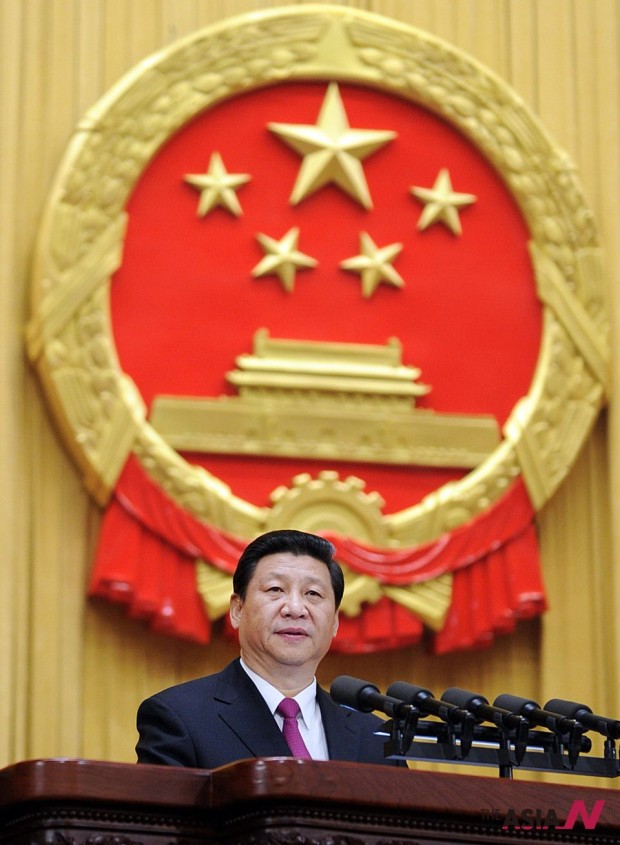Xi Jinping unfolds vision for ‘China dream’

Chinese President Xi Jinping delivers a speech at the closing meeting of the first session of the 12th National People's Congress (NPC) at the Great Hall of the People in Beijing, capital of China, March 17, 2013. <Xinhua/Li Tao>
China’s new leader President Xi Jinping outlined on Mar. 17 his vision for the ‘China Dream’ by saying renaissance is within the nation’s reach. President Xi, in his first address as head of state, said China had to follow its own path while putting its faith in the Communist Party’s leadership.
In the speech, Xi Jinping laid out a vision of a stronger nation with a higher standard of living for its 1.3 billion people. China’s new leaders vowed to maintain sustainable growth for the world’s second biggest economy and “pursue a renaissance of the Chinese nation” at the annual parliamentary session that completed the transfer of power to a new leadership.
Xi Jinping was officially installed as China’s leader with the ceremonial title of president in the meeting of the national legislature. He took over the leadership from Hu Jintao who had been in power for the last 10 years. The presidency usually has a term of 10 years in China. Xi also became the head of the Communist Party as well as chairman of the Chinese military.
New Premier Li Keqiang gave assurances that the new government’s top priority would be to maintain stable growth and that his administration was up to the task. Both Xi and Li stressed the necessity of deepening reform to deliver sustained growth but neither mentioned systematic political reform.
Stating his vision of China’s “great renaissance”, Xi stressed that the dream could only be realised by seeking “China’s own path,” cultivating patriotism and following the Communist Party’s leadership. “We must continue to strive to achieve the China dream and the nation’s great revival,” he said.
The new leadership has stressed it will make a priority of social spending and other measures to spread prosperity more evenly and narrow a politically volatile gap between China’s wealthy elite and poor majority, as well as combat endemic corruption.
“We must resolutely reject formalism, bureaucratism, hedonism and extravagance, and resolutely fight against corruption and other misconduct in all manifestations,” Xi said.
Analysts observe Xi’s speech outlined lofty, grand goals but stopped short of mentioning initiatives that would have real impact.
“There are conflicting assessments of how far and fast Mr. Xi can go in turning around that great supertanker of state. It is debatable whether he has to. Since the start of the banking crisis, China’s GDP has grown by 52.5%, which has slipped back four percentage points. Mr. Xi’s intentions will remain a political mystery, but more has emerged about Mr. Xi the political package,” The Guardian commented.
An economist based in Beijing who welcomed Xi’s remarks said that “Mr. Xi understood very well that key barriers for reforms are vested interests rather than ideology, or ‘soul’ in his words, and he promised to tread uncharted waters With China’s economic environment expected to remain “severe and complex”, the government will aim to manage latent risks to avoid ‘big fluctuations’ in economic performance.”
China’s new leadership unveiled the government restructuring plan, announcing the dismantling and merging of several crucial Cabinet-level ministries with the aim of reducing the government’s role and promoting non-governmental and market forces.






















































